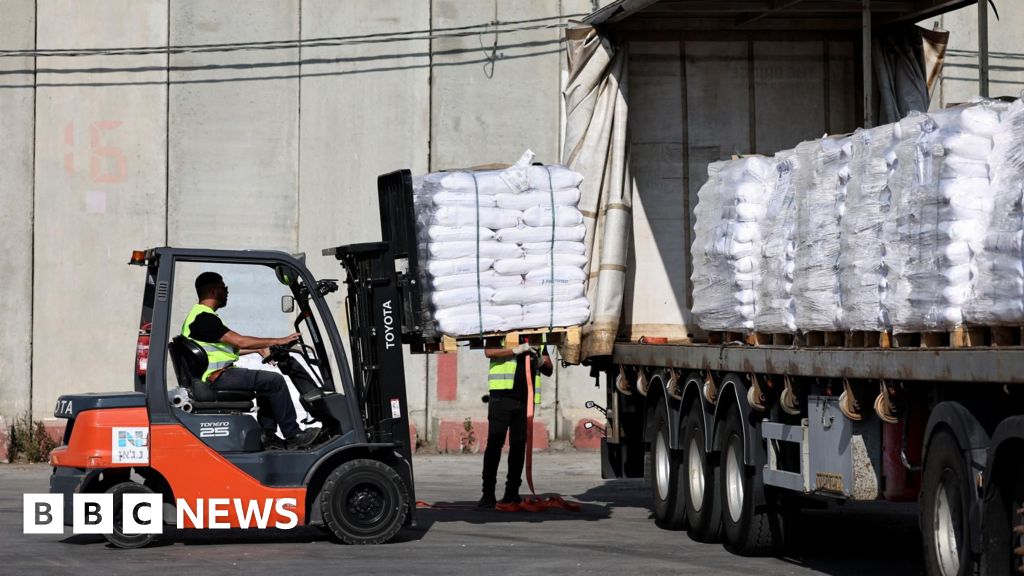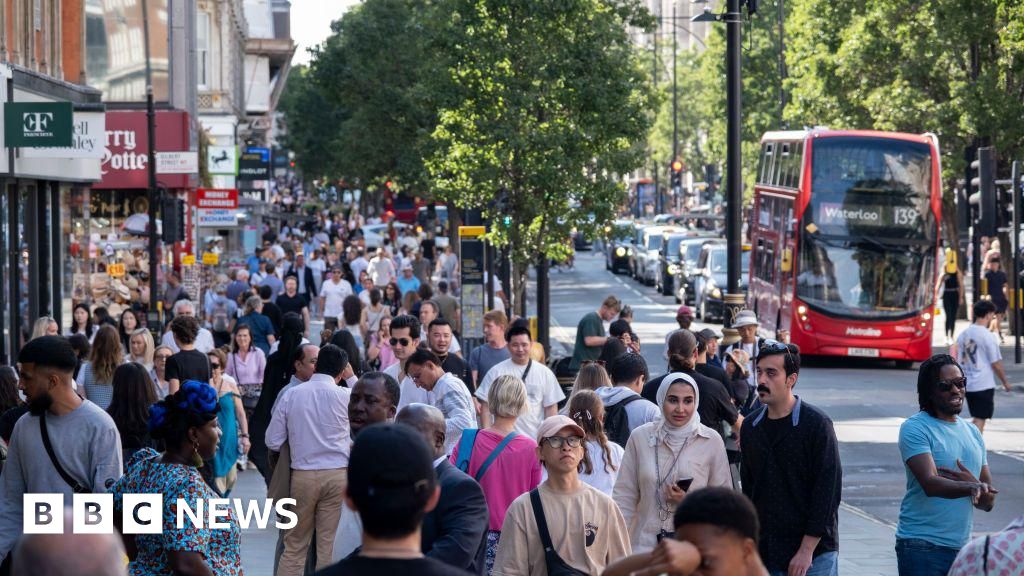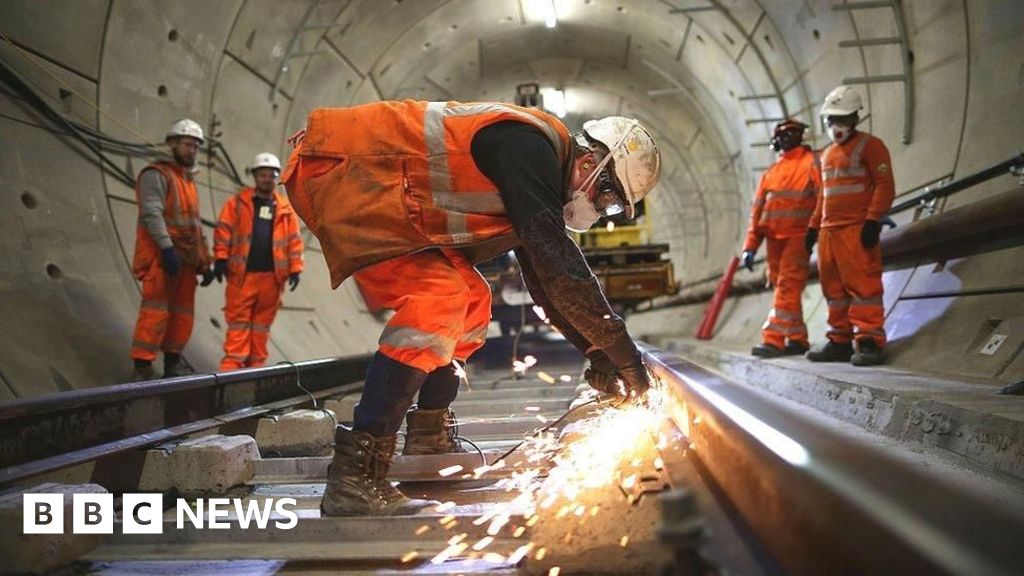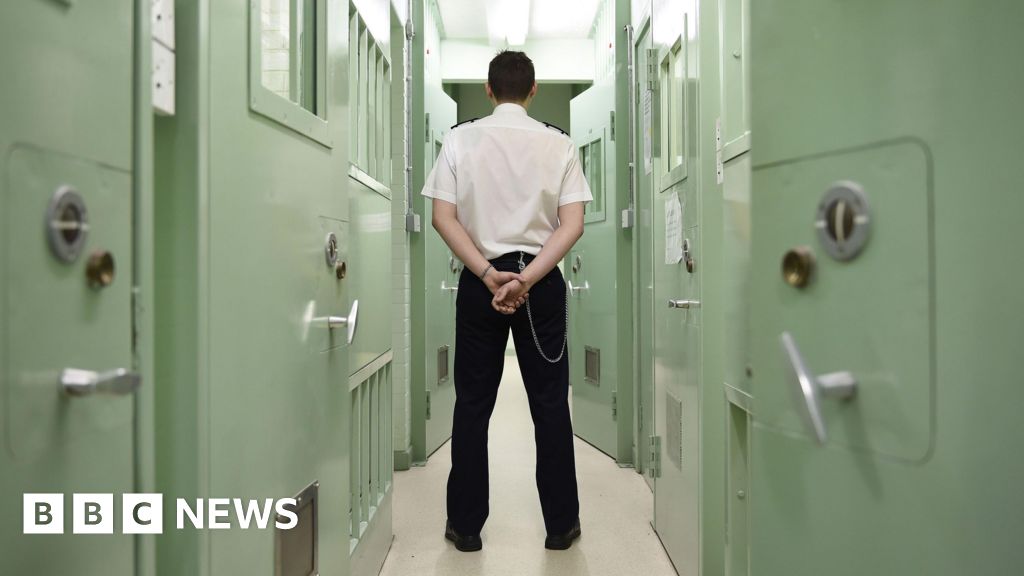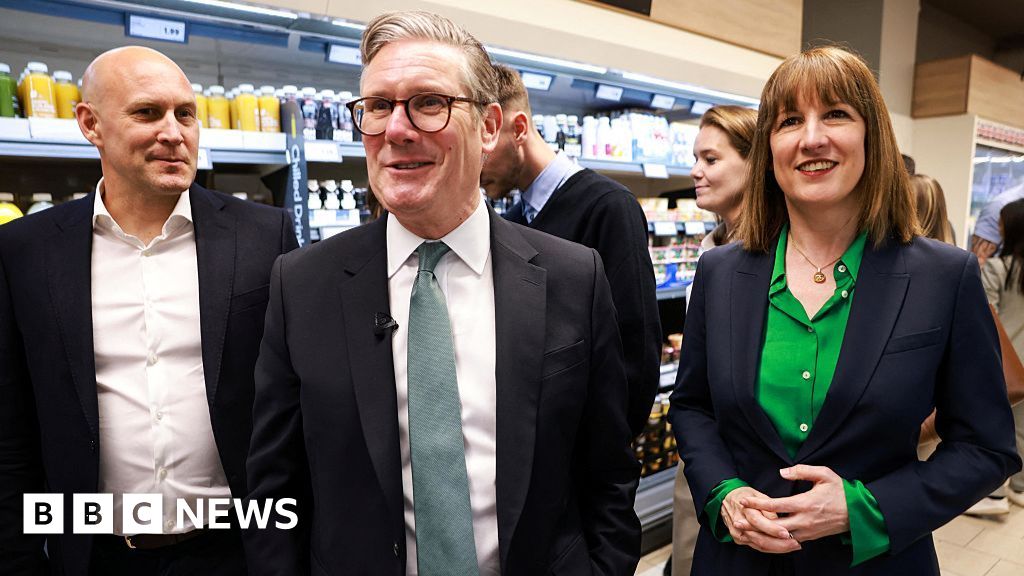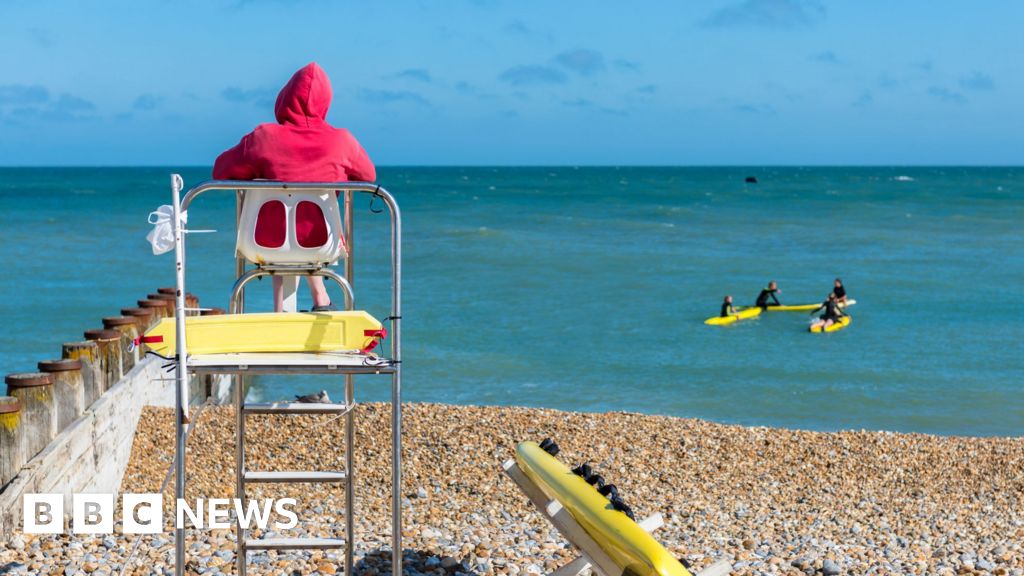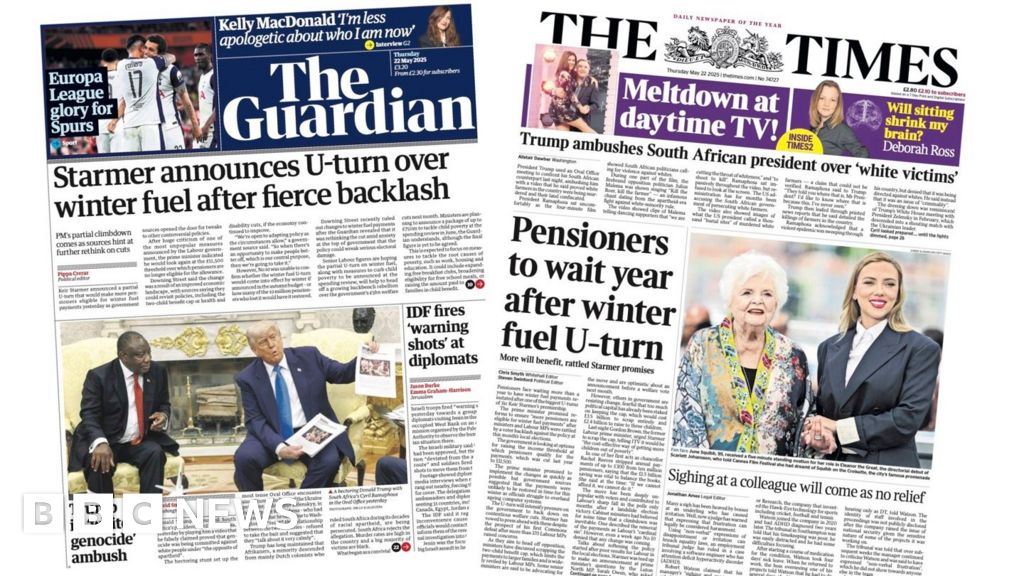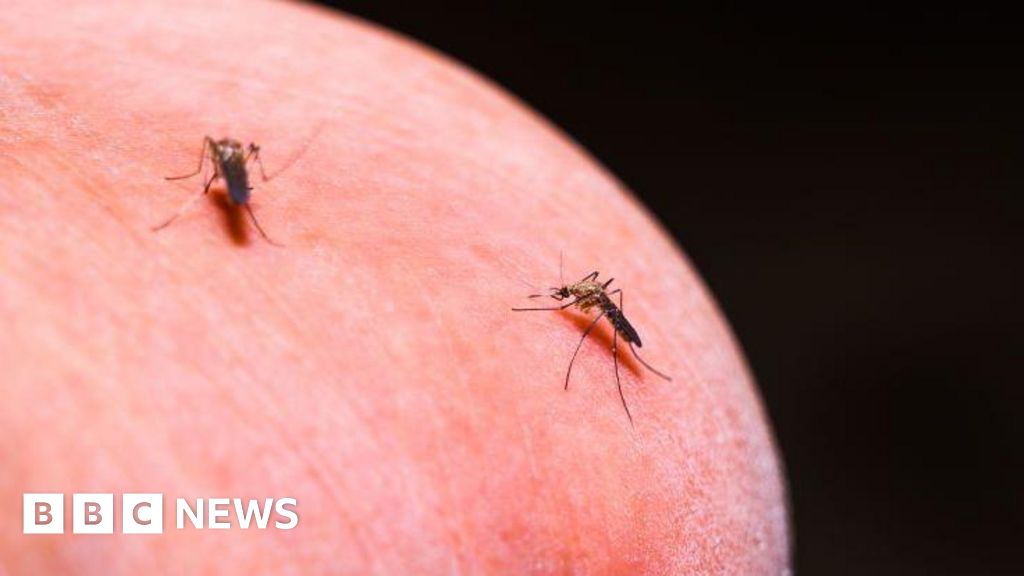Yolande Knell
Middle East correspondent, reporting from Jerusalem

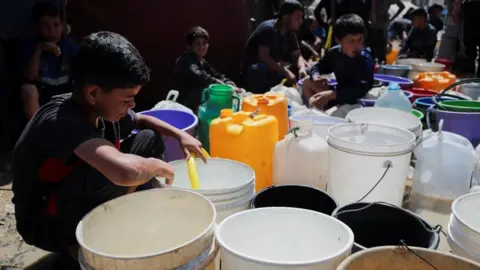 Reuters
Reuters
Palestinian children fill water containers at a refugee camp in Gaza City on Tuesday
Chronic shortages of water in Gaza are worsening as Israel's expanding military offensive causes new waves of displacement - and desalination and hygiene plants are running out of fuel.
The UN's humanitarian office has said its partners are warning that, without immediate fuel deliveries, a full shutdown of water and sanitation facilities is possible by the end of the week.
Days after Israel imposed its blockade on aid in early March - which is only now being eased - it also cut off power lines to the main desalination plants - a vital source of water for Gazans.
It said these steps were to put pressure on Hamas to release the remaining hostages it is holding.

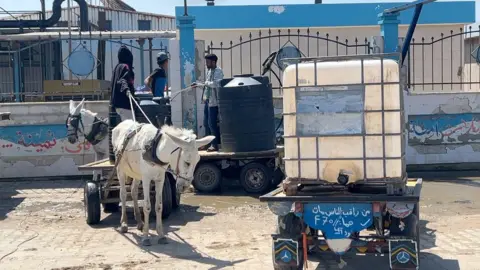
Donkey carts have continued to distribute water in recent days
Although Israel has said it will now permit the entry of basic supplies into Gaza, so far this has not included fuel. However, some drinking water was loaded on the dozens of UN lorries that have entered the strip - with supplies not yet distributed.
Parents have told the BBC that during 19 months of war, their children have grown used to drinking salty water - with doctors saying they have seen a rise in serious kidney complaints as a result.
"Often the water turns out to be half sweet [fresh], half salty," said Raed al-Zaharneh, a father-of-four in Khan Younis who, like most Gazans, now relies on water delivered on lorries.
"We know it is undrinkable water, and we still drink it," he went on. "We've had stomach pain and diarrhoea, but we put up with it. What do we do? We need to drink. There's no alternative."

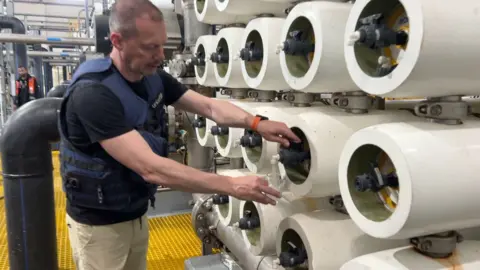
Jonathan Crickx of Unicef said production had reduced by 80% at a desalination plant in southern Gaza
Earlier this month, there was still a loud whirring sound at a desalination plant in southern Gaza as Jonathan Crickx of Unicef visited.
He said that production at the site had been reduced by 80% after electricity was recently cut off. However, it was still producing thousands of litres per day.
"The problem is that to produce water we now need fuel," Mr Crickx said. "And afterwards we need to truck the water to the different communities."
"This is a difficult process as we have less and less fuel, not only to produce the water but to run the trucks."
While some lorries as well as donkey carts have continued to distribute water in recent days, the ramping up of Israel's military offensive and new waves of displacement - affecting some 140,000 people in the north and south of the strip - have made this even more challenging.
The UN's Office for the Co-ordination of Humanitarian Affairs (Ocha) says that water and sanitation services have already been severely disrupted by ongoing fuel shortages.
In northern Gaza, no fuel is currently available and only half the needed supply was received last week, Ocha says. This has meant the operating hours for water wells have been further reduced with complete shutdowns expected.
In southern Gaza, Ocha says that UN water utilities have not received any fuel, although 140,000 litres of fuel per week are needed to keep them going. This has led to water, sanitation and hygiene facilities reducing their operating hours by more than one fifth.

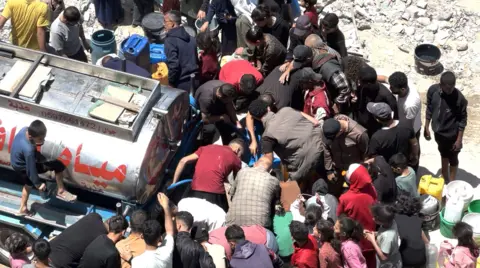
Gazans say they have no choice but to drink salty water when only that is available
UN workers have said they try daily to retrieve fuel from reserves in areas where they are required to co-ordinate with the Israeli authorities, such as Rafah - which has been a main focus of military operations. However, these continue to be denied.
No new fuel has been allowed into Gaza since Israel imposed its full blockade on 2 March.
A kidney specialist at al-Shifa hospital in Gaza City, Dr Ghazi al-Yazji, told the BBC he was seeing more patients with new infections and conditions caused by contaminated water and drinking water with high salinity.
"We don't have precise figures, but the cases are noticeably higher among children," he said.
Even before the war, shortages of water and the poor quality of supplies in Gaza contributed to relatively high numbers of patients with serious kidney complaints.
Dr al-Yazji says his department has 220 patients requiring kidney dialysis and that they have been disproportionately affected by the worsening water problems. Several, he said, had recently died.

 9 hours ago
9
9 hours ago
9
